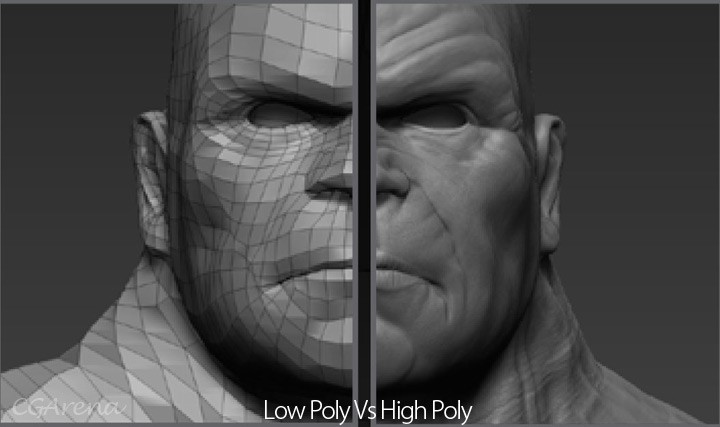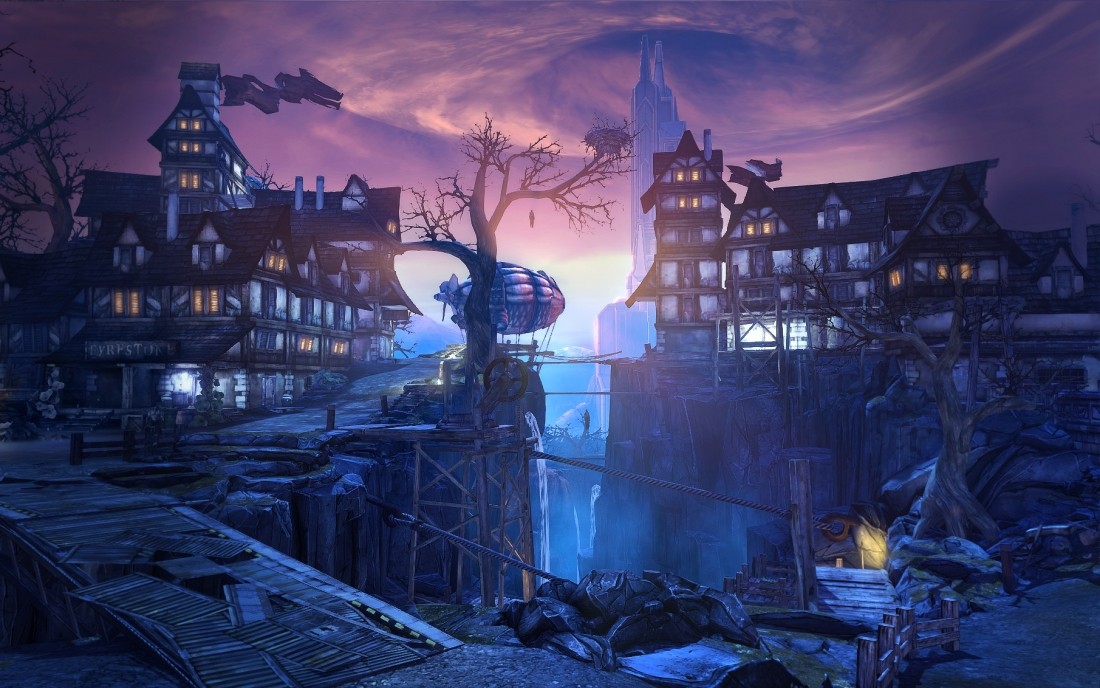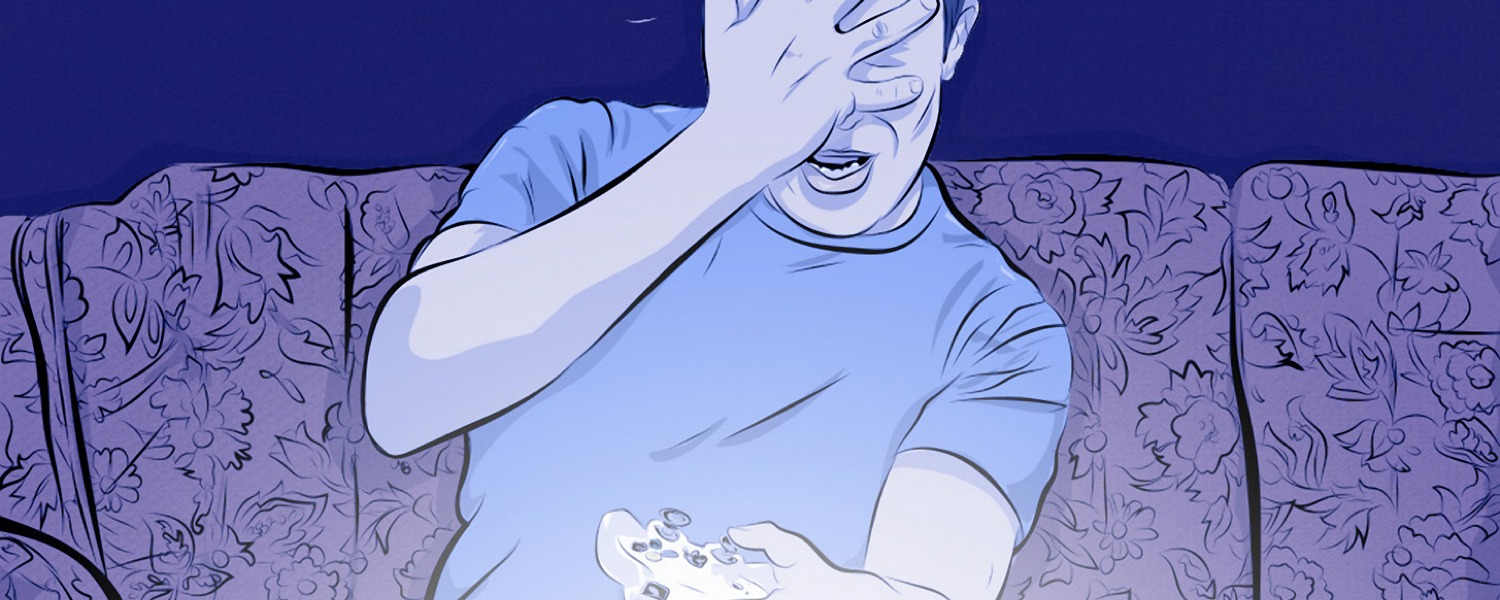
Back in the day, I wouldn't hesitate to call a game like Assassin's Creed "a piece of fucking shit," or to paint its developers as "a bunch of idiots who don't understand game design." These are not hypotheticals---I, like, said that shit. In a video. With my face in it.
I said this kinda stuff all the time, and why wouldn't I? I played their games, I found them wanting, and I felt like I had a pretty good idea of where and why things had gone wrong. I may not have ever made a game myself (apart, that is, from a 2D artgame best described as "Passage meets Battletoads" and oh my god was it as bad as it sounds), but I basically knew what game development was about, right?
Wrong. Wrong, wrong, wrong.
1. Making games is a thousand times harder than I thought
I was an atrocious blogger so I'm probably just speaking more to my personal ignorance during that time than anything else, but jeez is everything about game development more complicated and difficult than I thought.
Let's say you want to make a non-player character. Before I got hired, I thought, well, it can't be that complicated from the art side, right? You concept up a character in a week or so, then model the thing. Done.
Nope.
Nope.
To make a new NPC, you need to concept the character (which can take weeks), then do a high-poly model. And man, do the high-poly models look great; they look perfect, in fact, except for the fact that they actually, uh, won't be anywhere in the game. Because you actually need to make a low-poly model based on the high-poly model, which takes more time. But hey; at least you're done now, right? Just put him in the game and let him animate. Except, oh, wait, right. You need to make the animations. But before that, you actually have to rig the character so it can animate at all - before rigging, it's just a static model, no more animated than a 3D rock.

Image: CGArena
And that's just for the third-person model. Since this is a playable character and, assuming you're making a first-person game, you're going to be seeing through their eyes, they also need new models for their first-person hands (you can't just take the actual hands from the model), and those models need new animations, and oh by the way, now the character has a new ability where they do something weird with their hands so you'll also need to make new first person and third person animations for that ability, and, and, and...
I haven't even mentioned design or code, or how memory concerns can suddenly remove an entire enemy type that your story relied on that you now have to rewrite, but you can't rewrite too much because the localization (global translation) deadlines are so tight that the Japanese localization team can't get their Claptrap actor in for very long because he's actually a big celebrity over there and is doing lots of other work, and you need to hurry because the game needs to be on store shelves in six months, which is actually only three months as far as you're concerned because the publisher needs three months to manufacture the discs, and and and and and...
Everything - everything in game development was more difficult and complex than I thought. So now, when I play a third-person action game and a character's model occasionally clips through things, I let that shit slide.
2. Games look like complete ass for 90% of their production
In Borderlands 2, we created a downloadable, playable character named Krieg the psycho.
This is what that dude looked like for the vast majority of his development:
He didn't have his own model or animations, and instead was cobbled together from parts of other characters. His third-person model was a headless Axton (the soldier class in Borderlands 2), and when you went into his special Buzzaxe Rampage mode he used Gaige's (the Mechromancer class) hands with a non-animating pizza cutter glued to the tip of her pointer finger.
Obviously, he looks ridiculous. Nothing like what we eventually shipped. That's important to note not just because it's funny (though it obviously is), but because it speaks to one of the great difficulties of game development that I never knew about: how do you judge the quality of something that isn't even close to looking complete?
Audiovisual feedback is one of the most important things to making a game feel good (this talk by Vlambeer about game-feel is a must-watch), but often it's also the thing that comes online latest in development. When a new mechanic feels bad, is it because the mechanic itself is wrong, or because the feedback isn't in yet to make it feel good?
Several Borderlands 1 devs have told me that Fight For Your Life Mode was nearly cut a few times during BL1's development. If you're not familiar with the mechanic, Fight For Your Life gives the player a second chance to avoid death. If an enemy drops your health to zero, you go into a sort of bleedout mode. If you can kill just one more enemy while in this mode, you'll get back on your feet and be back in the fight.
Problem is---at least at the beginning of development---people found it too confusing, and not fun. Why was it confusing and not fun? Because there was no visual feedback to tell you (A) what the hell you needed to do, (B) if you'd successfully done it, or (C) the result of your doing it successfully.
Obviously, Fight For Your Life is one of the coolest things about the Borderlands combat loop, but it's really hard to understand what's going to be awesome versus what's inherently problematic when you don't have the bells and whistles that give you the full picture.
When I play games with mechanics that don't feel good, I'm no longer as quick to throw up my hands and go, "Guh! This is so obviously shitty and un-fun and dumb! Why didn't they cut this way earlier in production?" Well, maybe because they had faith it'd turn into something cool, like all the other, better mechanics did. (Mechanics that I probably assumed were just fantastic the first time anybody prototyped them.)
3. When devs use the word "excited" they're not blowing smoke up your ass
I always found it irritating when press releases or developers overused the word "exciting." We're really excited for this upcoming partnership! We're excited to show you this new feature! Surely, I thought, this is all manufactured passion; these guys make games all day, every day. How "exciting" can it be to show journalists a new section of the game, or talk to them about the story, or share a new trailer?
As it turns out, creating stuff actually is exciting. Being able to share the fruits of your labor with people honestly gets your blood pumping. I remember getting up really early the day we first announced Borderlands 2 so that I could tweet, with great pride, "I'm writing for this game." That single sentence was more gratifying, momentous, and, yes, exciting than any of the vitriolic takedowns I'd written of other people's work.
Now, granted, this isn't to say that every single press release and dev interview is full of 100% genuine enthusiasm. I have a hard time envisioning a world in which Konami was truly excited to put AXE Body Spray in Metal Gear Solid: Peace Walker, for example. Still, though, devs weren't anywhere near as dishonest about their jubilance as I thought they'd been.
4. Game devs actually read a lot of critical writing on their work
Man, I was such a dick. I took such glee - such heinous glee - in talking about how shitty my least favorite games were and how stupid their development teams were. (Again, I literally called the Assassin's Creed development team "a bunch of idiots." Which, don't get me wrong, I still really dislike Assassin's Creed, but "idiots"? Seriously?). And in the back of my mind, I thought, "feh - it's no big deal. Those guys are so busy, there's no way they read anything I've written on their game."
I obviously can't speak for anyone else, but that certainly wasn't true for me. I've read every single review of Borderlands 2 and its DLCs. It's hard to spend years - literal years - working on one thing and not be interested in what other people think about it.
I'll be honest: when Borderlands 2 came out and got very good, but not astronomical reviews, I had a weeklong bout of what I can only describe as Diet Postpartum Depression. Half of that was due to the fact that a thing I'd just spent nearly three years working on had finally come out and hadn't resulted in my becoming immortal and having a four-hour long orgasm, and half was because we didn't break 90 on Metacritic*. I bring this up not to engender pity---"boo hoo, poor game dev only got an 89 on Metacritic, your life must be so hard"---but to point out that a lot of us do actually read what's said about our games, and it does have an effect.
(*Not because it would result in some sort of payout bonus or anything, but because pride, you know? Maybe it's just me, but I look at a 90 game with a much different sense of that game's quality than when I look at an 89 game.)
I mean, I still don't like any of those games I negatively reviewed when I was a blogger, but I'm far less likely to be a hostile asshole about them. Don't get me wrong: I still believe that negative reviews are absolutely important to the medium, but I no longer take joy in ripping apart a game I didn't like just to prove that I'm smarter than its creators in some way. Criticism is generally more about your readers than the creators---when I gave Twilight Princess a 4/10 for Destructoid, I was trying to warn people from spending their money on it more than I was trying to stick it to Nintendo. But it can be easy, in that relationship, to miss the fact that when you shit on a developer, you're shitting on actual human beings. Human beings with lives, feelings, passions and (if they're anything like me) significant self-esteem problems. It probably, in other words, wouldn't have killed me to be a little goddamn nicer.
Now, I'm not trying to say that all critics are dickheads and all creators infallible---nothing of the sort. Criticism is goddamned necessary, and developers make mistakes.
But the gulf between what I thought I knew as a blogger and the truth of game development was so huge, so unimaginably vast, that I sometimes wanna go back in time and shake my early-20s self by the shoulders.
5. If you think something sucks, that's not really news to the dev team
"What were the devs thinking?!" Many were the times I yelled that phrase at my screen when playing a game I didn't like. Why is that level so crap? Why is that plot point so underdeveloped? Why is that ending so abrupt? Maybe, I thought, the developers are just dumb. How could they have not seen these problems coming?
As it turns out? They quite possibly did. Game devs are not a bunch of oblivious monkeys who smash their keyboards with crosseyed indifference---they often know what works and what doesn't, and why. When particular aspects of a game end up being less than stellar, it's likely not because the developers are dumb, it's because time and money constraints forced them to make tough choices.
As a for-instance: why are most video game endings kind of disappointing? Is it because the developers are stupid and don't know how to bring closure? Or is it because, on average, only a small percentage of the people who buy your game will see its ending and every moment you spend polishing it is one you haven't spent on other parts of the game? Parts that a way bigger chunk of your players will actually interact with?
If you had to choose, which would you rather put time into: the beginning of the game, which will hopefully ease players into your world and make them interested enough to continue playing and see all the cool stuff you have in store for them? Or the ending?

In a sense, this is why I consider the downloadable expansion Tiny Tina's Assault on Dragon Keep to be the "true" ending of Borderlands 2. Now, I'm pretty happy with the ending of BL2 - we wrapped up the main plot and had an epic boss fight---but we didn't really get a lot of time to just hang out with the main characters and decompress. The story ended, but we didn't have an epilogue.
Flash forward to Dragon Keep's development. We not only had the time and budget we needed to wrap up the story completely, but we knew full well that anyone who grabbed the DLC would (thanks to its comparatively less insane running time) be more likely get through the entire experience and get the whole story.
Ultimately, I now realize I knew next-to-nothing about the actual process of making games. When I blogged for Destructoid, I was full of legitimate complaints that were, unfortunately, couched in mean-spirited vitriol and uninformed logical leaps. I still hate a lot of games, but being in the trenches of actual game development---watching as features or scenes I loved changed or died thanks to the realities of production; seeing characters and enemies transform from unfun wastes of memory into wonderful additions to the game; hearing how good voice actors can save less-than-stellar dialog---has made me a lot less likely to get angry at the developers themselves.
Anthony Burch is a writer. He worked at Gearbox Software for five years, where he was lead writer of Borderlands 2 and all of its DLC. He currently works at RocketJump and will punch you in the throat if you mention Borderlands having too many internet memes.
Illustration by Sam Woolley
